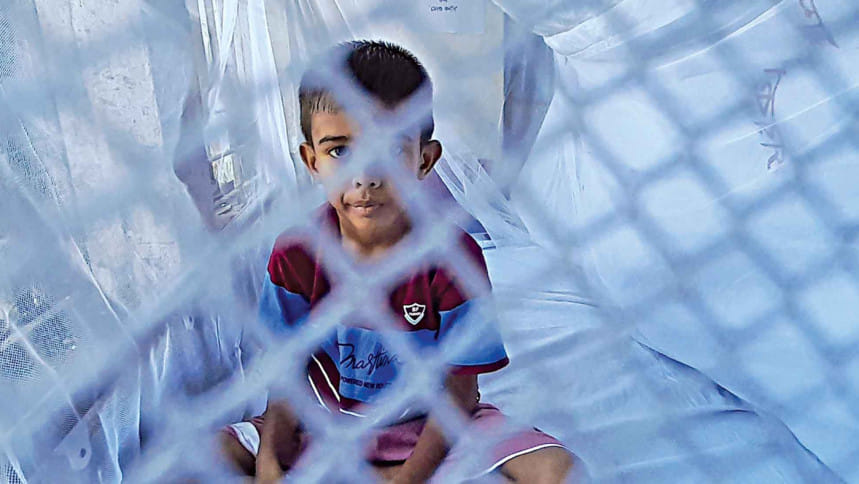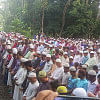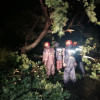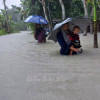Dengue outbreak: Cyclone may prolong the sufferings

The surge in dengue cases in the country could continue longer than expected because of the rain.
Experts had earlier expected that the number of patients afflicted with the mosquito-borne disease would reduce in the first week of November, but they are now predicting that the spike in cases will continue due to the wet weather.
There has been torrential rain in the coastal districts, as well as the capital, due to the effects of cyclone Sitrang since early yesterday.
In the 24 hours preceding yesterday morning, at least five dengue patients died and 903 others were admitted to different hospitals across the country, according to the Directorate General of Health Services (DGHS).
The total number of dengue cases this year stood at 31,966, and deaths 118.
Of the deaths this year, 69 were in Dhaka, 22 in Cox's Bazar, 13 in Chattogram, five in Barishal, three each in Mymensingh and Khulna, and one each in Narsingdi, Narail, and Feni.
"There was a chance of a start of reducing dengue cases in the first week of November but the current rain may cause the situation to linger for 15 more days," said Prof Kabirul Bashar of Jahangirnagar University's department of zoology.
He said due to the rain, water will collect in dry containers where Aedes mosquitoes, which spread dengue, will get a suitable place to increase their population. He, however, said since there is a storm, adult mosquitoes could die and that would reduce the spread.
"City corporations as well as city dwellers will have to carry out source reduction work round the year to contain Aedes mosquitoes," he added.
At a programme in Dhaka on October 20, Nazmul Islam, director of DGHS's disease control wing, said they are expecting dengue cases to decrease from early next month.
He said many factors are behind the high dengue cases. "This year, the monsoon came late. There has been intermittent rain, barely any torrential rain, then regular rain due to low pressure. These issues have played a very important role."
Entomologist GM Saifur Rahman of National University, Bangladesh said the breeding sides which were supposed to be inactive within a few days will be revived due to the current rain.
He said the Aedes mosquitoes' tendency to bite increases during this kind of weather.
After the rain stops, authorities concerned will have to take effective measures to destroy all breeding sources so that Aedes cannot breed and spread further, and they will also have to involve people in the process, he said.
Tahmina Shirin, director of Institute of Epidemiology, Disease Control and Research (IEDCR) last week emphasised on the need for awareness campaigns involving councillors or locally influential persons to control Aedes mosquitoes in an area.
Talking to The Daily Star, she also suggested that people with fever, a major symptom of dengue, take sufficient fluids like oral saline, fruit juice, sorbet, and coconut water in case of fever.
"A patient will take fluids during fever and also continue it even after the fever goes away as there is a chance of deterioration after the fever," she said.
The patients should be hospitalised when they experience nausea, stomach pain, breathing problems or bleeding from any parts of the body, she advised.

 For all latest news, follow The Daily Star's Google News channel.
For all latest news, follow The Daily Star's Google News channel. 









Comments